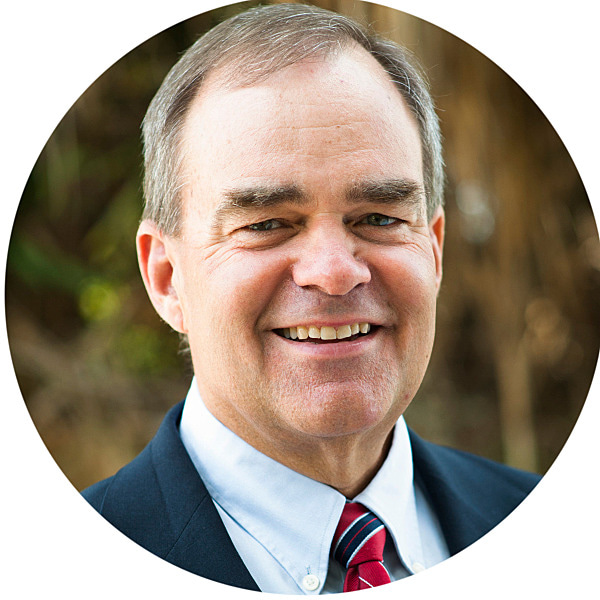In addition to counseling within my local church for over forty years, I have been involved in biblical counseling ministry to people outside of the church since 1993. While the Lord uses counseling ministries for good, one danger of relying upon outside counselors is that it can become a substitute for the ongoing soul care offered by sound biblical churches.
Ideally, people receive soul care in their local church—this is the best place for God’s people to seek soul care as the elders/pastors shepherd God’s flock (1 Peter 5:1-5) aided by other mature believers (including gifted godly women who counsel women Titus 2:3-5). One advantage of this approach is that church leaders should already know their sheep—as opposed to outside counselors who must start relationships afresh. Those who have been living life with the counselees have been “watching the video” while outside counselors are only able to see a snapshot of the problem.
Another reason for counseling to take place in the local church is that the church has necessary resources to help those who are struggling spiritually. These resources include the public means of grace, faithful shepherds, and the entire body of believers who are gifted and able to help those who are struggling. The church is also a place where those who are healing can learn to serve others.
Why might people seek counsel outside of their local church?
I have seen several reasons why people seek outside counsel. Sometimes, it’s because many churches don’t practice biblical counseling. Some may believe biblical counseling is best, but for various reasons it is not available through their local church. While it could be argued that we should encourage them to go to a better church, I usually am reluctant to encourage people to leave their evangelical Bible-believing churches, in spite of such shortcomings. Sometimes a counselee may reach their own conclusion that they need to find a church which will more faithfully shepherd the sheep.
Other times, people seek outside counsel because they don’t want the leaders within their local church to know how sinful or messy their lives have become. It is important that we tell such people that we don’t offer absolute confidentiality. If others, including their church leaders, have a right to know (for example, a situation which could become a matter of church discipline), we will involve them. We also seek to persuade our counselees that their church leaders should know them best and are called by God to shepherd them.
We have also seen large percentage of our outside counseling cases are with pastors and missionaries and their wives. Church leaders are usually reluctant to expose their struggles to those within their church. Furthermore, they may doubt that there is anyone in their local setting who is equipped to help. My wife counsels many pastors’ wives who say, “I don’t have anyone else I can talk to.”
Then, there are occasions when churches seek to faithfully shepherd their people, but recognize their need for outside help with difficult cases. For example, my wife is frequently called by local pastors who are faced with situations they do not believe they are equipped to handle (i.e. anorexia or self-harm).
Why counsel people outside of the local church?
Although it is preferable for soul care to take place within the context of the local church, there are tangible benefits to outside counseling such as:
• Training – One of the main reasons we offer counseling to people outside of our local church is so that we can use such cases as part of our training of future counselors. We give priority to counselees who will allow live observers to sit in.
• Evangelism – We have had several cases over the years in which unchurched counselees (or counselees in very weak churches) have come to faith. Then we help them to find a faithful local church where ongoing discipleship can take place.
• Help and equip local churches – We may have expertise and experience that would be helpful to faithful local churches. Ideally, a church will send along a leader or advocate with the counselee(s) so we can train them to provide ongoing care.
• You will learn and grow – My education as a counselor has been accelerated through counseling at counseling centers. In one year I might see a greater variety of cases than an ordinary pastor would see in a decade.
What are some common challenges with outside counsel?
What can go wrong when people seek biblical counsel outside their local church? To begin with, we have found that there is a significant correspondence between counseling success and committed membership to a sound local church. Counselees who have not committed to a faithful church[1] tend to have ongoing problems for which they keep coming back for crisis counseling.
Another common challenge arises when counselees expect us to be their shepherds. Counselees often look to their counselor to fulfill the role which should be played by their local church pastor. Counseling outside of the local church (for example, in a biblical counseling center) is designed to be a temporary relationship. We meet for a limited number of times in order to address particular issues, and then when the issues have been resolved, the counselee is sent to thrive in a church in which they can receive ongoing care. This approach frees up spots on the counseling schedule, which can then be taken by a new counselee who is looking for help.
Recently, I challenged a counselee who had been between churches for several months with the question, “Who is watching over your soul? To whom you are in submission?” (Hebrews 13:17). His response was, “You are.” It had become clear that our counseling relationship was, in a sense, keeping him from feeling the urgency of finding and joining a local church. To address this challenge, I explained that I cannot be his pastor if he is not in my church[2]—and that he must actively pursue joining a church as a condition for further counseling with me.
Often we are faced with the reality that we cannot meet a counselees’ expectations, particularly when it comes to our availability. When people look to their outside counselor for ongoing pastoral care, we will not have the bandwidth without neglecting our other responsibilities (see the movie, “What About Bob”). The counselee may then become angry with us for not meeting their expectations (Jeremiah 17:5-8).
How can we balance outside counsel with local church soul-care?
In light of all this, what can biblical counselors do to incorporate their outside counsel with a counselee’s local church? They can start by insisting that every counselee either be a committed member of an evangelical church or at least be actively pursuing membership. I wrote my mini-book, Help! I Need a Church, for the purpose of helping counselees to see the importance of commitment to church membership. My book also contains biblical criteria (my 10 Marks!) for choosing a church. I have observed that counselees often choose a church for reasons which are unimportant biblically while neglecting necessary scriptural criteria.
Biblical counselors can also work proactively with the counselee’s local church. They can do this by asking their counselee to tell their pastoral leadership that they are meeting with an outside counselor. Ideally, we will then coordinate their soul care with their pastors. The best case would be if the church agreed to become actively involved through the sending of a leader or an advocate to participate in the counseling sessions and coordinate ongoing pastoral care.
Another way to pursue balance between outside counsel and local church soul-care is to set clear expectations from the start. If someone is not a member of your local church, they need to understand the limitations of your counseling relationship. Explain that there will be a finite number of sessions, and that access outside of these sessions will be limited.
It’s important for counselors to set and follow biblical priorities for their time. Ministry can become so consuming that we neglect to care for our families as well as ourselves (i.e. rest and exercise). Because of their heart to help others, counselors can be tempted to be “people-pleasers” who have a very difficult time saying “No.” Outside counseling ordinarily should come after your own walk with God, your family, and your local church ministry. God doesn’t expect you to meet every outside need which presents itself.
Conclusion
While soul care ideally takes place within the local church, there may be situations in which counselors can effectively serve the Lord through counseling outside of the church. We need to be careful, however, not to allow counselees to look to outside biblical counselors as a substitute for the shepherding which God has designed to take place through the local church and its leaders.
Reflection questions
- What place, if any, should parachurch centers have in biblical counseling ministry?
- How can pastors manage requests for counsel from outside of their local church?
- How should a counselor deal with a counselee whose expectations are too great?
Footnotes
[1] In many cases, counselees remain in a church which falls short of the biblical standard for soul care, or they remain on the fringes of various churches without committing.
[2] For various reasons, I do not want all of my counselees to join my church, and even if they do, I may not be their primary shepherd.
Jim Newheiser, DMin, is the director of the Christian Counseling Program and associate professor of Christian counseling at Reformed Theological Seminary, Charlotte, NC. He also serves as director of the Institute for Biblical Counseling and Discipleship and is a board member at both the Biblical Counseling Coalition and the Association of Certified Biblical Counselors. He is the author of Money: Seeking God’s Wisdom, the minibooks Financial Crisis and How to Love Difficult Parents, and numerous other books. Jim has been married to his wife, Caroline, for many years, and they have three grown children.



